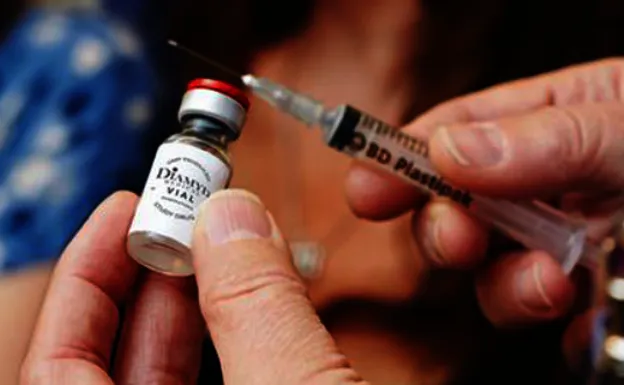The study is developed in Spain, Czech Republic and Sweden to prove the efficacy of the drug in newly diagnosed children and young people.
Professionals of the Diabetes Unit of the Regional Hospital of Malaga (located in the Civil Hospital) participate in a European multicentric study, which takes place in Spain, Czech Republic and Sweden, to verify the effectiveness of a vaccine against type 1 diabetes in children in childrenand young (from 14 to 24 years old) who have recently been diagnosed (less than six months).
The objective of this clinical trial is to verify the effect of this new treatment (diamyd) on patients and see if the pancreas continues to produce insulin or not.
The principal researcher of this study in Malaga and responsible for the Diabetes Unit of the Endocrinology and Nutrition Service of the Regional Hospital, Marisol Ruiz de Adana, explained to this newspaper that the test will demonstrate if the vaccine serves to preserve the beta cells (which whichThey manufacture insulin) that are attacked with the appearance of diabetes.
The T lymphocytes of the patient's immune system are those that, by an error, destroy these cells.
«The vaccine what it intends is to deceive the immune system as long as possible and that the pancreatic reserve of people with type 1 diabetes, between 12 and 24 years who have been recently diagnosed, remains for six to eight years instead ofTwo, as is the case now, ”said Dr. Ruiz de Adana.
This expert endocrinologist in the issue of diabetes stated that the vaccine that is being tested is not curative, but it can serve to preserve the pancreatic reserve several more years, which would have an undeniable benefit for patients.
The objective is to verify whether with the vaccine the preservation of beta cells is achieved, which are the ones that produce insulin
In the clinical trial there are 80 people with type 1 diabetes of Spain, the Czech Republic and Sweden.Of these, three are from Malaga (two boys who were 17 when they were selected and a 12 -year -old boy).The treatment consists of putting three injections (one each month) in the inguinal area.
In the case of Spain, researchers and patients from Malaga, Bilbao, Madrid, Barcelona, Seville and Zaragoza participate.The general coordinator of this multicenter study is the Swedish professor Johnny Ludvigsson.In Spain, the project is coordinated by Luis Castaño.In Malaga, in addition to Dr. Ruiz de Adana, doctors Juan Pedro López Siguo (principal researcher in the pediatric area), Francisca Linares, Marta Domínguez, Isabel Leiva and Marta Pacheco and Immaculate Nursing professionals Benavides are part of this clinical trial)and Francisco Ramos.
Patients included in the Diagnode 2 clinical trial begin treatment by taking vitamin D or placebo (substance that, lacking therapeutic action, produces some favorable effect on the patient if it receives it convinced that this substance really has such action).
Subsequently, half of the patients are injected with vaccine (diamyd);The other half the injection it receives is placebo.Both one and others, the injection is put in an inguinal lifantic ganglion, with ultrasound control performed by an experienced radiologist and local anesthesia is administered.
The duration of the study is 15 months.Neither patients nor doctors know who the vaccine is injected and who receives placebo.This clinical trial has been approved by the Spanish Agency for Medication and Health Products.
One of the young Malaga people who are part of the study told this newspaper that participating in the project was "an irrevious opportunity."This boy, who is now 18, was diagnosed with type 1 diabetes on November 25, 2017. «I have nothing to loseparticipating in the clinical trial.
If I am part of the people who have received the vaccine, that can benefit me and if I am one of those who have been injected with placebo, I will not suffer damage and I will have been able to collaborate with the investigation, ”said the young man, who was 17 when he was when he wasselected to join the study.
This boy, who is injected with the insulin he needs through a kind of pen, highlighted the good attention given by nursing professionals who have attended him in this research project.


